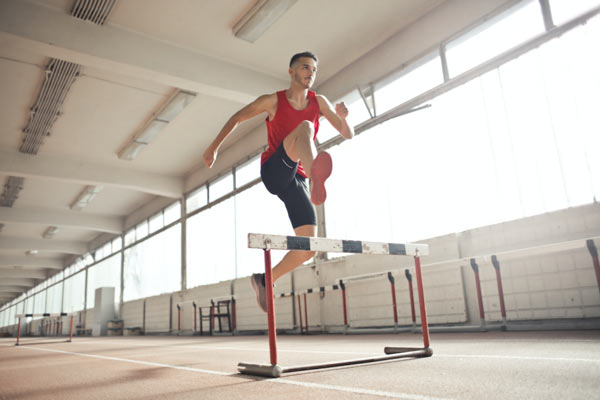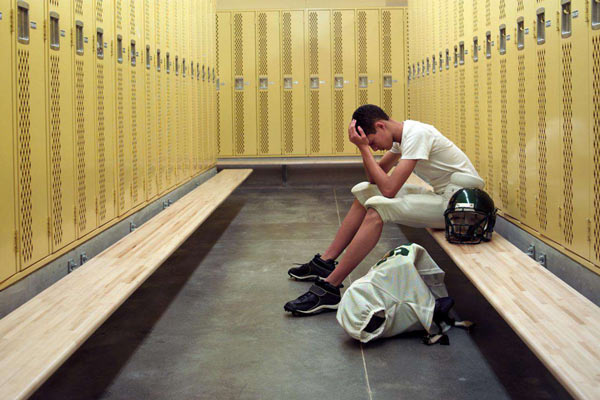How to Overcome Performance Anxiety in Sports With Psychology
Dec 13, 2023 By Nancy Miller
One of the frequent challenges that athletes experience in a number of sports that they compete in and affects how well they play, is performance anxiety. It is vital that every athlete should learn how to overcome their anxieties since the psychological aspect of the games contributes to success.

Sports psychology will take us into the realm of handling performance anxiety among athletes so that they can perform better under pressure.
Understanding Performance Anxiety
The psychological phenomenon of performance anxiety in sports has been a major concern in many disciplines, which is an obstacle to successful performance. This anxiety entails an increased rate of nervousness, an overwhelming feeling of inadequacy, and an imminent failure. Pre-match stress and anticipating pressure can be considered a major symptoms for athletes suffering from performance anxiety.
Moreover, the dread of messing up can be incapacitating and prevent an athlete from performing skills accurately. People are often hard-hit at crucial stages, rendering them unable to concentrate at a critical time. Recognizing and understanding the psychological aspects of performance anxiety is crucial on the path to defeating it. This provides the basis from which suitable measures necessary to neutralize anxiety and build mental toughness can be designed.
Mindfulness and Visualization Techniques
An effective strategy in fighting against performance anxiety is through the use of mindfulness and visualization. Such types of mindfulness exercises aimed at being in the present moment may be particularly useful for athletes. These include, among others, deep breathing, progressive muscle relaxation, and guided imagery for calming the mind and minimizing anxiety.
However, visualization involves mentally rehearsing successful performances. In mental rehearsal, athletes are able to imagine themselves accomplishing and even visualizing everything that took place, beginning from the starting point to the finish line. The success gained from practice motivates confidence and also creates familiarity with success, thus making it realizable in reality.
Positive Self-Talk
Despite all, positive self-talk is one of the major psychological weapons used by great athletes trying to achieve peak performance. Athletes' inner talk has been found to have a significant impact on their general achievement. The concept of positive self-talk is essentially a way that individuals voluntarily replace damaging, unproductive, or pessimistic thoughts with constructive and hopeful ones. Athletes should nurture such mindsets as "I am capable" and "I have succeeded before." Such a mental state is more important than not thinking about the mistakes of the past or expectedly failing in the future. The change of this inner monologue can be highly critical when it comes to improving athletes' mindsets and promoting them with the appropriate approach.
The development and consistent repeating of positive affirmations constitute one of the many parts of positive self-talk. Instead, athletes can come up with a set of positive statements that highlight their strengths, skills, and recent successes. The recurring of those affirmations functions like a brain exercise and retrains the mind towards the right thoughts. The deliberate change of the mental state has proved to add considerable value in stressful moments in which one may experience fear. Athletes reduce anxiety by continually reinforcing positive affirmations that enhance self-esteem and robustness, making it possible for them to perform at their best.
Essentially, positive self-talk refers to more than plain optimism and should involve changing how an athlete thinks about things. Shifting from a probably restrictive discussion toward a more positive one nurtures an enabling and positive frame of mind. Positive reinforcement affirmations help athletes prepare mentally for breaking down barriers, recovering after disappointments, and ultimately achieving their best sports performance.
Goal Setting and Focus
Sports psychology is based on establishing attainable and specific targets. Breaking bigger targets into small tasks will act as a map towards the achievement of success in athletes. Moreover, it gives guidance and also helps one keep an eye on the current tasks they are involved in.
When in competition, it is important for athletes to focus on the process and not the end result. The mind is occupied with a focus on the execution of skills, strategy, and teamwork, which distracts the mind from worrisome thoughts. By changing their attention from the past or future to the present moment, athletes are able to cope with anxiety, maximize performance, and stay focused.
Developing Pre-Game Rituals

A strategic method that ensures athletes experience structure in the high anxiety that accompanies competition before games. These represent psychological anchors which bring comfort and predictability in a situation of insecurities For the players to be physically ready for the competition, it is good for them to incorporate certain warm-up routines in their preperformance rituals./ This dual attention creates a total holistic readiness that encompasses more than just the physical dimensions of the game.
Often, visualization exercises form an integral part of a pre-game ritual and are done along with physical warm-ups. Mentally rehearsing, athletes visualize themselves performing perfectly and winning. Visualization primes the mind towards the challenges ahead, which is essential for boosting confidence in a positive way. In addition, having a music playlist as a part of pre-match rituals can do wonders for athletic emotions. Listening to favorite music helps to create a suitable state of mind that is focused, motivated, or relaxed and depends on individual preference.
The success of pre-game rituals comes from doing it repeatedly. Performing similar rituals before every competition gives the brain a strong signal that it is time to change into a performer's mode. Such repeatability, for example, helps in reducing anxiousness as it brings predictability and helps set up mind readiness. This means that athletes should have a ritual that will make them enter into competitions confidently, focused, and feel more in control, leading to enhanced performance results.
Utilizing Sports Psychology Professionals
A sports psychologist is an expert who studies how psychology affects athletic activities. Athletes, it is wise to consult a sports psychologist so that he/she can prescribe individual coping approaches in order to conquer anxiety during performances.❍ These specialists are able to determine particular predisposing factors and design personalized programs that solve problems that are peculiar to every particular athlete.
Conclusion
A successful strategy for overcoming performance anxiety should include mental training, encouragement, and an end objective. Athletes should consider incorporating the principles of sports psychology in their training regime in order to become mentally tougher, gain concentration, and tap into their potential to perform at their best on the pitch or on the court. The famous phrase "success is 90% mental and 10% physical" underscores the crucial role that mental strength plays in sports.








